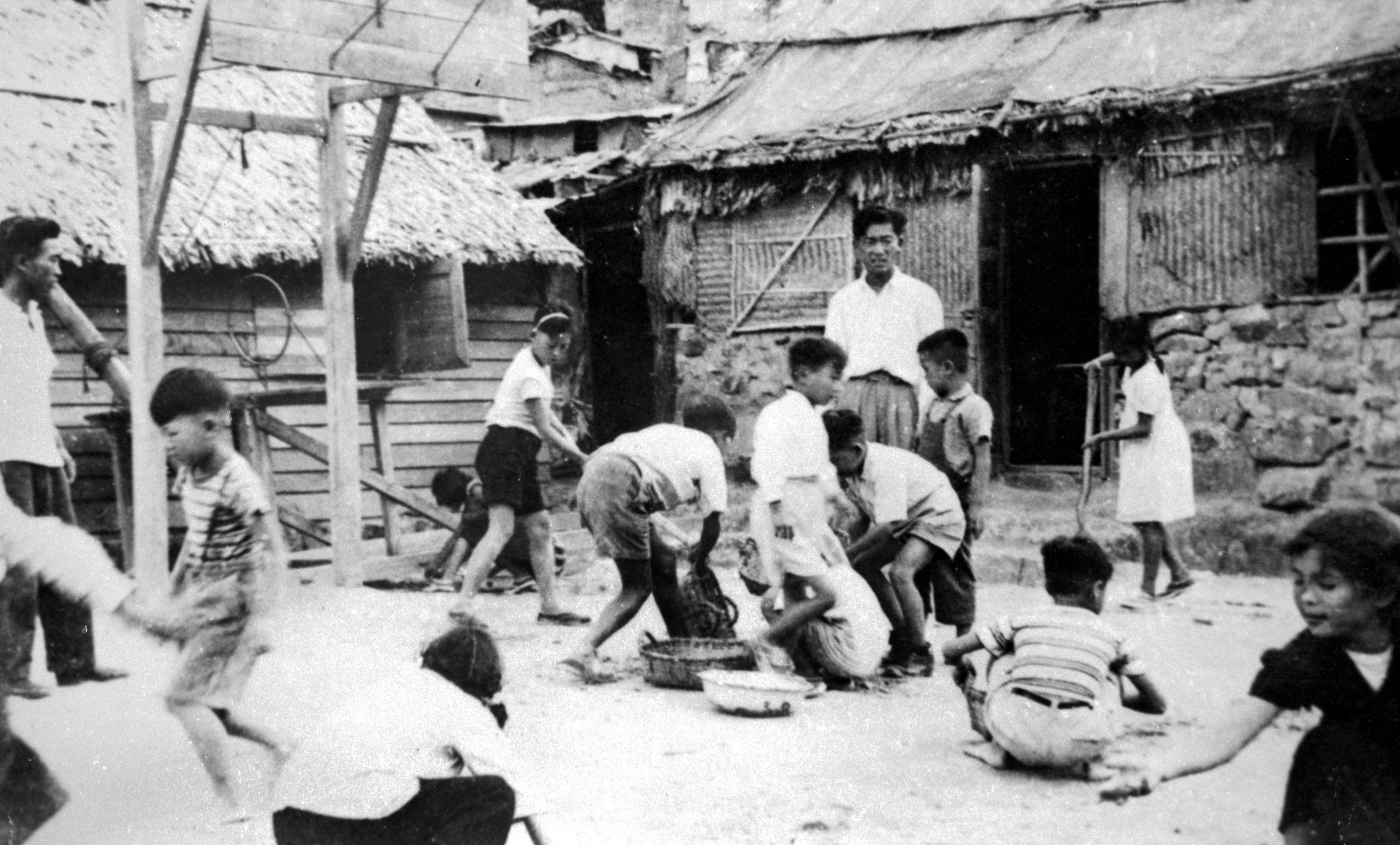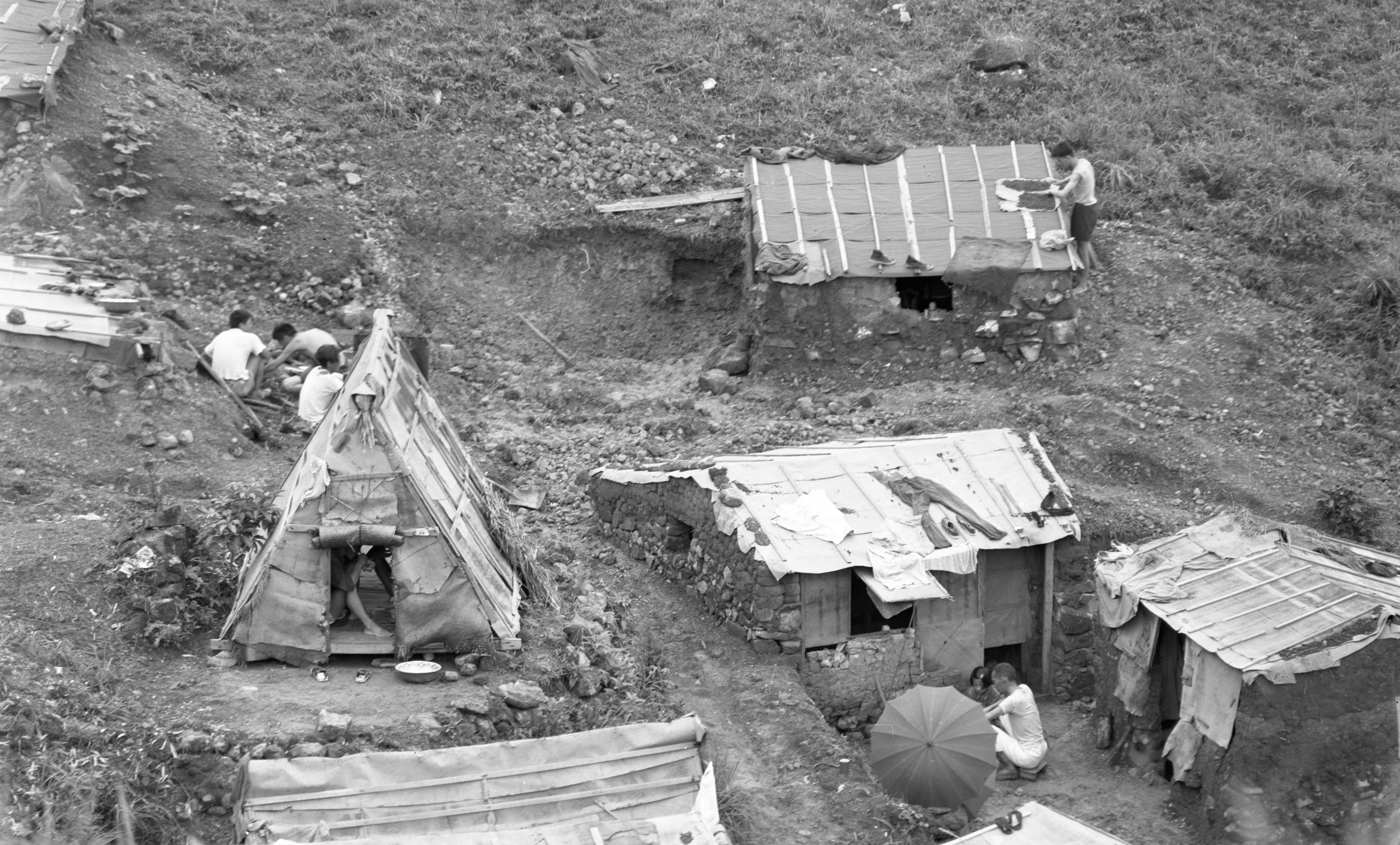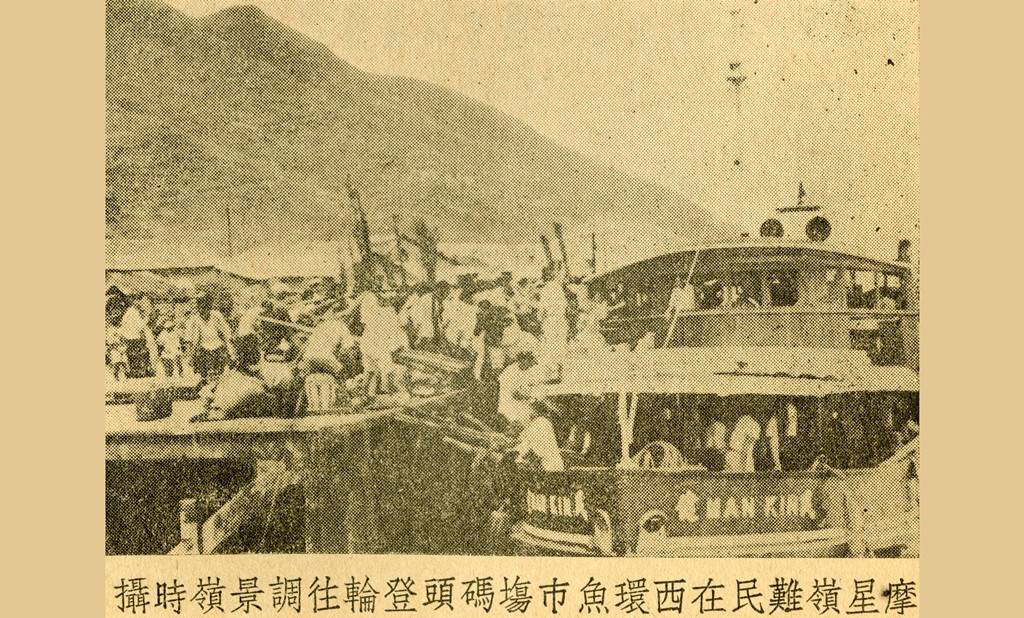Refuge: THE MATSHEDS
1949 – 1950
Post-war Hong Kong attracted huge numbers of refugees from mainland China. One group, who settled on Mount Davis, posed especially complex political issues. Their brief stay here sparked conflict – and led to the founding of a new Nationalist-oriented community at Tiu Keng Leng that lasted until the 1990s.
As the Chinese Civil War (1946-1950) neared its end, thousands of defeated Nationalist soldiers and their families fled to Hong Kong. Some were seriously wounded. Many were from Northern China and did not speak Cantonese. Most feared returning to Mainland China, having fought against the victorious Communists. The Nationalist government, which had retreated to Taiwan, did not really want them; it feared that they would be an economic burden and that Communist spies might be hidden among them.
So, these refugees remained in Hong Kong and needed help. However, since Britain wanted – and Hong Kong desperately needed – normal relations with the People’s Republic of China (PRC), officials were reluctant to publicly aid these refugees seen as enemies of the PRC. They assumed a low profile, asking the Tung Wah Group of Hospitals, a non-governmental charitable organization, to provide relief, while quietly reimbursing most of the costs. Many refugees were briefly housed at Tung Wah’s Temporary Shelter on Hospital Road, which had been used for impoverished new arrivals since 1910, or in impromptu shelters outside Tung Wah Hospital. But as the refugees grew more numerous, they were relocated twice: first to Yak Pik Ting in Kennedy Town, and then to Mount Davis. As word spread to China about these relief efforts, other Nationalists fleeing defeat in the civil war headed directly for Mount Davis. By the end of November 1949, thousands of these refugees were living in makeshift housing on Mount Davis; some were camped on what had been Jubilee Battery. More refugees came when the Nationalists lost Hainan Island in early 1950; by March, there may have been 10,000 Nationalists on Mount Davis.
Some local residents objected to these settlements, fearing crime, contagious disease, and fire. The British undertook some sanitary measures, to prevent contagious diseases that might spread from the matsheds to surrounding areas. Otherwise, they continued to keep their distance, relying on the Tung Wah’s increasingly strenuous efforts. The British, meanwhile, were planning to turn the buildings of Jubilee Battery into a mess hall and housing for the Royal Engineers. Thus, they wanted the refugees removed. By April 1950, British officials had decided to relocate these people, forcibly if necessary, to an abandoned factory area near Tseung Kwan O called Tiu Keng Leng (or “Rennie’s Mill,” after the factory’s deceased owner). They hoped that these people could be moved again soon, either to Taiwan or the PRC. Their plans were secret, but rumours of a mass eviction spread, provoking protests.
On the 18th June 1950, pro-Communist union members who were celebrating the Dragon Boat Festival on Mount Davis clashed violently with the refugees. Roughly 60 people were injured; each side blamed the other. The British acted soon thereafter: on the 26th June 1950, police forcibly relocated 5,900 people from Mount Davis to Rennie’s Mill; others soon followed, of their own accord. With the outbreak of the Korean War (1950-1953) that same week, intensifying Cold War tensions, further relocation became impossible.
Rennie’s Mill became a distinct, enduring community. For years, it hosted pro-Nationalist demonstrations, festivals, schools, and other institutions (subsidized from abroad); the Nationalists, in turn, celebrated Rennie’s Mill’s “righteous loyalty.” How much of this was voluntary and how much reflected pressure from pro-Taiwan agents is uncertain. But by the 1970s, tensions were easing slightly; the community’s Taiwanese ties remained strong, but became more cultural than political. When Rennie’s Mill disappeared – bulldozed in 1995-96 for high-rise housing – there were no significant political consequences. And on Mount Davis, the emblematic matsheds were long, long gone.


